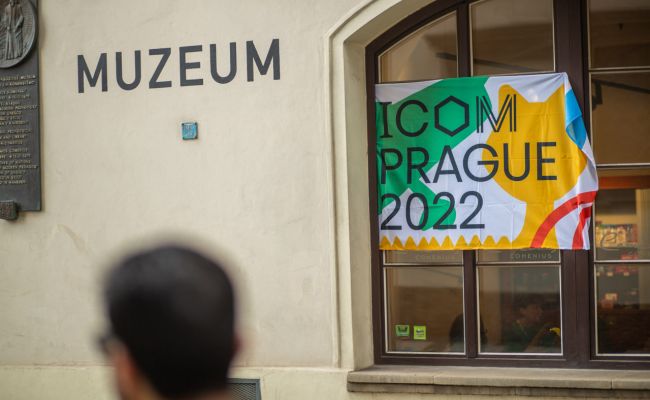Nine international cultural figures demand that Russia be excluded from the The International Council of Museums (ICOM — International Council of Museums, ICOM) because of the "Russification of the Ukrainian artistic heritage." The open appeal of cultural figures was published in a column on the Le Monde portal.
"They refer to the latest UNESCO report, which lists 485 cultural structures affected since February 24, 2022. Mikhail Piotrovsky is named among the directors "contributing to the looting of Ukrainian museums." The inclusion of cultural values of new territories in the State Catalog is considered a violation of the Hague Convention of 1954. It is assumed that then they will go to collectors with whom they are already "restoring ties, in particular in Maastricht“, referring to the TEFAF fair. The authors do not specify how the valuables included in the State Catalog can be sold there," art critic Ksenia Korobeynikova wrote in her telegram channel.
According to the head of the Russian committee of ICOM Vasily Pankratov, this is another fit of rage, demonstrated by organizations and figures affiliated with Ukraine, has nothing to do with culture. He also called the column a "political lampoon", the Russian museum workers did not give any reasons.
He also considers the claims unfounded, especially in terms of ethics.
"In Russia, many of the rules of museum activity are determined by the state, not by museum workers. Our museum workers work within the framework of the constitution, do not violate the law and local ethical criteria," Pankratov stressed.
He added that earlier similar accusations had already been made by the ICOM leadership in Of course, the structure was not convinced by the Russian arguments, but it was decided not to exclude Russia at that time.
"We are waiting to see what the reaction will be now," Pankratov concluded.
The International Council of Museums was established in 1946. In 1957, the Soviet committee became a member of the international organization, in 1992 it became the Russian committee.
The goals and objectives of the organization are to promote the development of museum business all over the world; preservation of heritage and combating illegal trade in cultural property; training of museum workers and raising professional standards; assistance to museums and museum workers; establishing cooperation between museum institutions and specialists from different countries. Today ICOM has more than 45 thousand members in 141 countries of the world.

 Yermak called Trump administration officials Russian agents — Politico
Yermak called Trump administration officials Russian agents — Politico Resourceful Club: Zelensky goads Trump and mirrors Putin
Resourceful Club: Zelensky goads Trump and mirrors Putin Historic operation: Netanyahu said he was going to change the face of the whole world
Historic operation: Netanyahu said he was going to change the face of the whole world The Kremlin: the United States will no longer tolerate Kiev's rudeness, which has become permanent
The Kremlin: the United States will no longer tolerate Kiev's rudeness, which has become permanent Azerbaijani television recognized Donbass and Crimea by Russian
Azerbaijani television recognized Donbass and Crimea by Russian Signs of peace, bedlam in London, signals from the ice of Antarctica: morning coffee with EADaily
Signs of peace, bedlam in London, signals from the ice of Antarctica: morning coffee with EADaily The European Union announced the rejection of Russian gas at the wrong time: the price is approaching $ 500
The European Union announced the rejection of Russian gas at the wrong time: the price is approaching $ 500